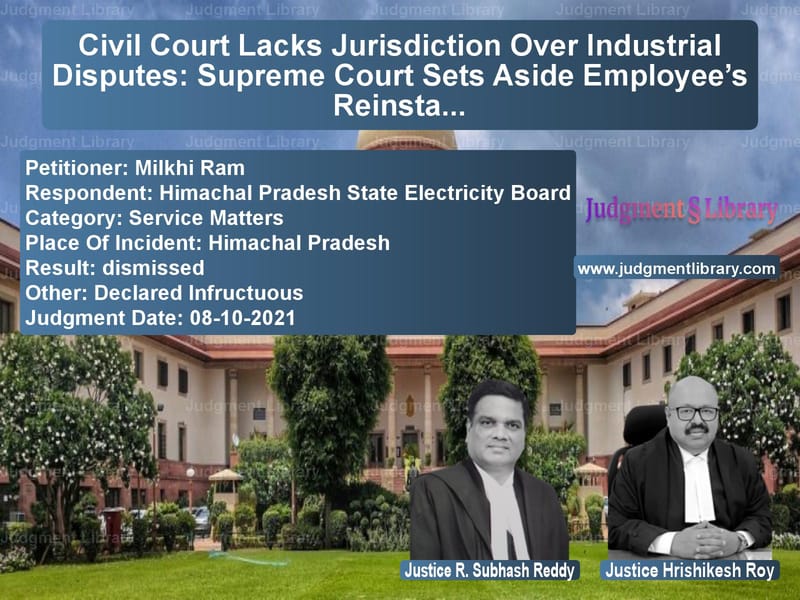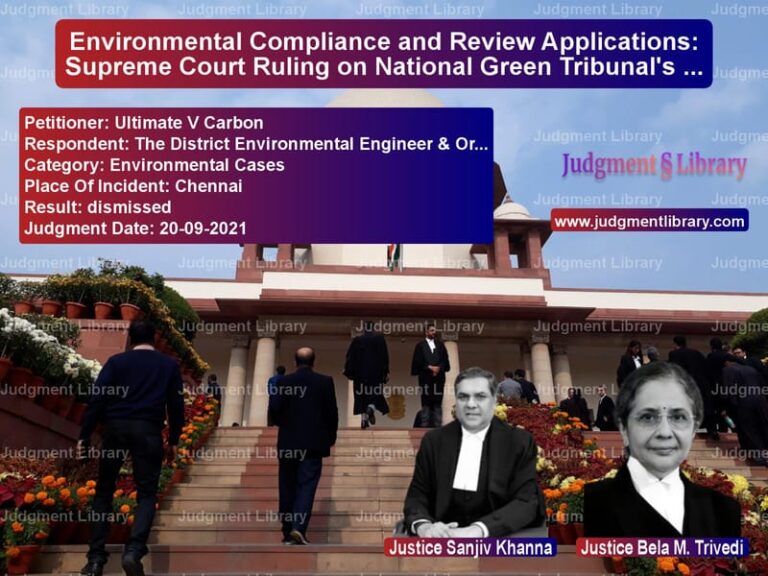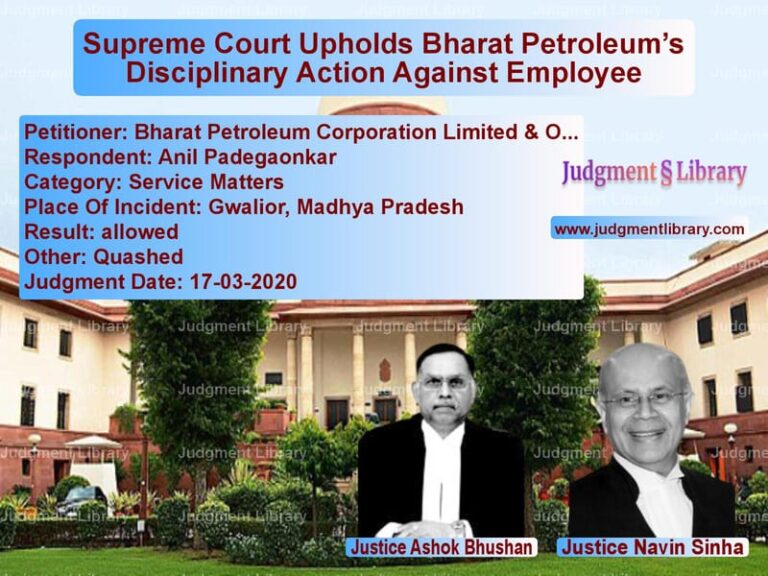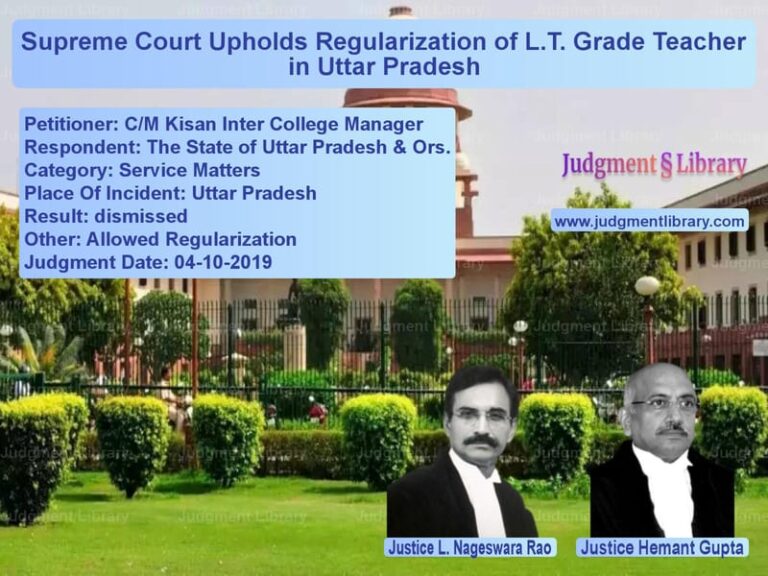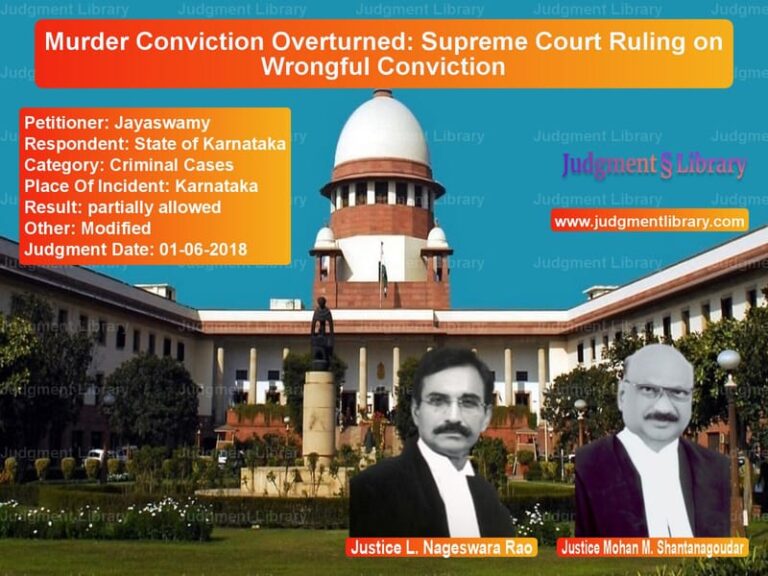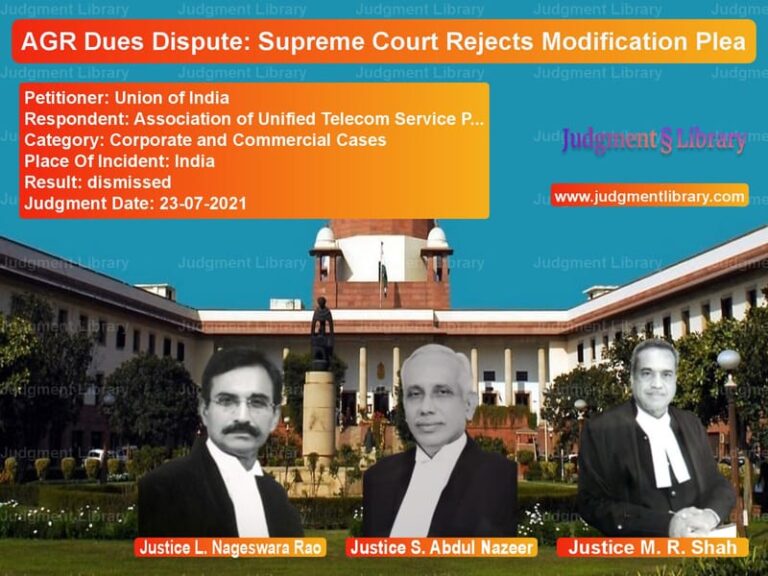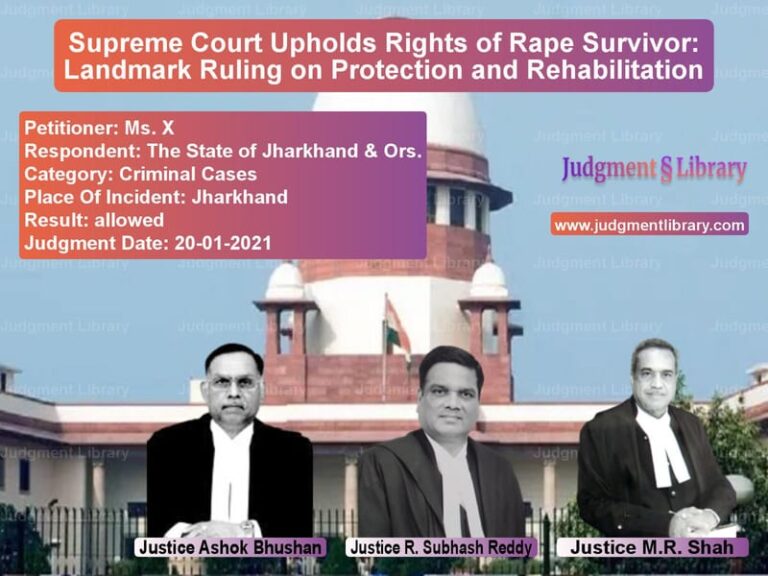Civil Court Lacks Jurisdiction Over Industrial Disputes: Supreme Court Sets Aside Employee’s Reinstatement
The Supreme Court of India recently ruled in the case of Milkhi Ram vs. Himachal Pradesh State Electricity Board, setting aside the orders of the lower courts that had directed the reinstatement of a terminated daily wage employee. The Court held that the civil court lacked jurisdiction to entertain a suit based on the provisions of the Industrial Disputes Act, 1947 (ID Act), making the previous decree a nullity.
Background of the Case
The case involved Milkhi Ram, a daily wage employee under the Himachal Pradesh State Electricity Board (HPSEB), whose services were terminated on January 1, 1985. Aggrieved by the termination, the appellant filed a civil suit in the trial court, claiming reinstatement on the grounds that he had completed over 240 days of continuous service, making his termination unlawful under Section 25F of the ID Act.
The trial court ruled in favor of Milkhi Ram, ordering his reinstatement with back wages and directing HPSEB to consider regularizing his service. The employer challenged this decision in the district court, which upheld the trial court’s verdict. The matter was then taken to the Himachal Pradesh High Court, which ruled that the civil court lacked jurisdiction over the dispute, as the case fell within the purview of the ID Act. Consequently, the High Court declared the civil court’s decree null and void.
Petitioner’s Arguments (Milkhi Ram)
Milkhi Ram challenged the High Court’s ruling in the Supreme Court, arguing that:
- He had rendered uninterrupted service for over 240 days, entitling him to the protections under the ID Act.
- His termination was in violation of Section 25F of the ID Act, which mandates proper notice and compensation.
- As an aggrieved workman, he had the right to choose between filing a suit in a civil court or approaching the industrial forum.
- The lower courts had correctly ruled in his favor, and the High Court erred in reversing their decisions on jurisdictional grounds.
Respondent’s Arguments (Himachal Pradesh State Electricity Board)
The HPSEB countered these claims, arguing that:
- The jurisdiction of the civil court is barred in matters concerning the ID Act.
- Any dispute regarding retrenchment, reinstatement, or regularization must be adjudicated by the Industrial Tribunal or the Labour Court.
- The civil court’s decree was legally void, and its enforcement could not be sought through execution proceedings.
- Even if back wages had been paid under the civil court’s order, they should not be recovered due to the hardship it would cause to the employee.
Supreme Court’s Analysis
The Supreme Court examined the primary issue of whether the civil court had jurisdiction over the dispute.
1. Does the Civil Court Have Jurisdiction Over Industrial Disputes?
The Court reaffirmed that industrial disputes must be adjudicated under the ID Act and not through civil suits. Citing precedents such as Rajasthan State Road Transport Corporation vs. Khadarmal and Rajasthan SRTC vs. Zakir Hussain, the Court held:
“When civil court has no jurisdiction, the decree passed in those proceedings can have no force of law.”
The Court explained that since the relief sought was entirely based on the ID Act, the case should have been brought before the appropriate industrial forum. The High Court was correct in holding that the civil court’s decree was a legal nullity.
2. Can a Decree Passed by a Court Without Jurisdiction Be Executed?
The Supreme Court ruled that an order passed by a court without jurisdiction is unenforceable. The High Court had rightly observed that a challenge to jurisdiction could be raised at any stage, including during execution proceedings.
The judgment stated:
“The decree favoring the plaintiff is a legal nullity and, therefore, unenforceable.”
Judgment and Conclusion
The Supreme Court dismissed Milkhi Ram’s appeal, upholding the High Court’s decision that the civil court lacked jurisdiction over the matter. However, in light of the hardship caused to the employee, the Court ruled that the back wages already paid to him should not be recovered.
This judgment reinforces the legal principle that disputes concerning employment termination, reinstatement, and regularization must be adjudicated under the ID Act, and civil courts cannot entertain such claims.
Judges: The judgment was delivered by R. Subhash Reddy and Hrishikesh Roy.
Petition Result: Dismissed
Petitioner Name: Milkhi Ram.Respondent Name: Himachal Pradesh State Electricity Board.Judgment By: Justice R. Subhash Reddy, Justice Hrishikesh Roy.Place Of Incident: Himachal Pradesh.Judgment Date: 08-10-2021.
Don’t miss out on the full details! Download the complete judgment in PDF format below and gain valuable insights instantly!
Download Judgment: milkhi-ram-vs-himachal-pradesh-sta-supreme-court-of-india-judgment-dated-08-10-2021.pdf
Directly Download Judgment: Directly download this Judgment
See all petitions in Employment Disputes
See all petitions in Termination Cases
See all petitions in Public Sector Employees
See all petitions in Judgment by R. Subhash Reddy
See all petitions in Judgment by Hrishikesh Roy
See all petitions in dismissed
See all petitions in Declared Infructuous
See all petitions in supreme court of India judgments October 2021
See all petitions in 2021 judgments
See all posts in Service Matters Category
See all allowed petitions in Service Matters Category
See all Dismissed petitions in Service Matters Category
See all partially allowed petitions in Service Matters Category

